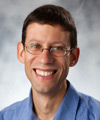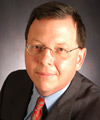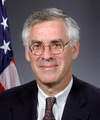
Security and Insecurity: An Inquiry into U.S. Foreign Relations in a Rapidly Changing World
Reed began its first classes in 1911. Committed to intellectual rigor and meritocracy; rejecting intercollegiate sports and fraternal societies; and imbued with a sense of academic freedom and nonconformity, Reed has for the past 100 years served as a groundbreaking model of the liberal arts while consistently preparing its graduates to be involved, with both independence of mind and pragmatism of thought, in the world around them.
This year’s Public Policy Lecture Series—honoring Reed’s centennial—addresses the connections and tensions between academia and government service, exploring the sometimes uneasy relationship between these interrelated traditions through a set of perspectives on the past, present, and future of U.S. national security policy.
All events are free and open to the public.

Evan Dawley
"From Reed to Washington and Back Again: The Noble Tradition in the Foreign Relations of the United States"
October 6
7 p.m., Vollum lecture hall
State Department historian Evan Dawley takes us back in time to explore the career of George Bernard Noble. Noble, who taught at Reed for 26 years, then served as a historian in the State Department for 16 years during the early years of the Cold War, exemplifies the connections and tensions between academia and U.S. foreign policy.
In his role at the Department of State, Dawley studies the history of U.S. relations with East Asia and the relevance of past relations for present diplomacy. He spent a year as a visiting professor of history and humanities at Reed College and has taught classes at Georgetown University and George Washington University. He completed a PhD in modern Chinese history at Harvard and a BA in history at Oberlin.
Supported by the Elizabeth E. Ducey Lecture Fund and by Reed’s history department.

Robert A. Pape
"Moving Beyond the War on Terror"
November 5
2 p.m., Vollum lecture hall
Robert Pape, political science professor at the University of Chicago and the parent of a Reedie, draws on lessons from the previous decade—and the "War on Terror"—to develop future policy prescriptions aimed at combating global terrorism.
Pape’s most recent book, coauthored with James K. Feldman, is Cutting the Fuse: The Explosion of Global Suicide Terrorism and How to Stop It (University of Chicago Press, 2010). He has published widely in peer-reviewed journals and his commentary on international security policy has appeared in the New York Times, the Washington Post, New Republic, and the Los Angeles Times, as well as on the Newshour with Jim Lehrer, Nightline, CNN’s Wolf Blitzer, Anderson Cooper, and Lou Dobbs, and National Public Radio.
Lecture followed by a short Q&A.
Sponsored by the Munk-Darling Lecture Fund in International Relations.

Richard J. Danzig ’65
"National Insecurity"
November 8
7:30 p.m., Vollum lecture hall
Former Secretary of the Navy Richard Danzig questions the premises underlying our current national security policies—characterized by national insecurity—and offers a set of principles and policies for the future.
Danzig, who served as the 71st Secretary of the Navy, is the chairman of the board for the Center for a New American Security. He is also a member of the RAND Corporation’s board of trustees and of the Defense Policy Board, a federal advisory committee to the U.S. Department of Defense. Danzig earned a BA in political science from Reed and BPhil and DPhil degrees from Oxford University, where he was a Rhodes Scholar. He then earned a JD from Yale Law School and was a law clerk to Supreme Court Justice Byron White. Danzig has taught at Harvard and Stanford, and spent two years as a member of the Harvard Society of Fellows. During the 2008 presidential campaign, Danzig served as a senior adviser to Senator Barack Obama.
In 2011, Danzig was selected as the first recipient of the Thomas Lamb Eliot Award for Lifetime Achievement by a Reed College Graduate. T. L. Eliot, Reed’s founding board president, was a Unitarian minister who encouraged the original funding for the college from Portland transportation magnate Simeon Reed and his wife Amanda. Eliot also worked for temperance and women's suffrage, founded the Oregon Humane Society, and helped to develop the public library. Danzig's extraordinary contributions to his field and his deep commitment to public service exemplify the spirit of intellectual rigor, independence, and integrity for which Thomas Lamb Eliot was known.